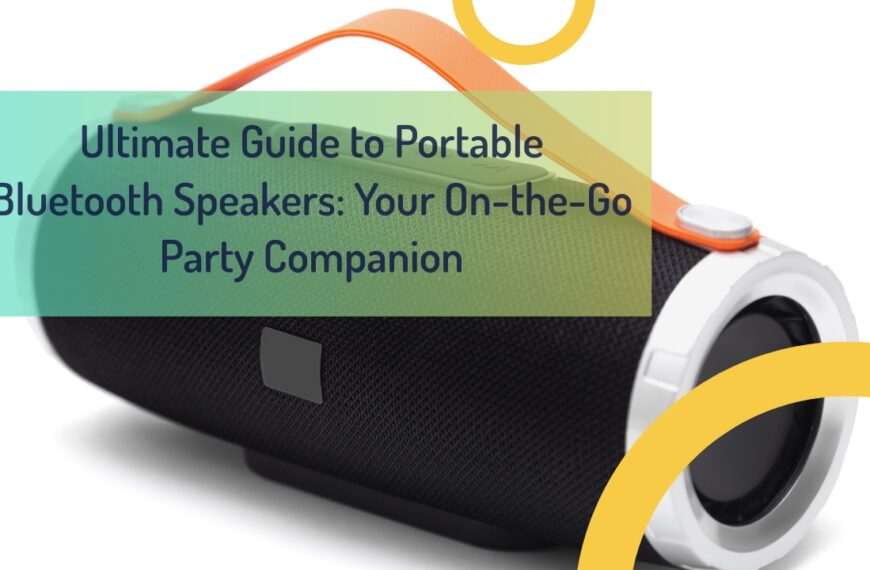Transform Your Fitness Journey with the Best Fitness Trackers and Smart Scales
In today’s health-conscious world, fitness trackers and smart scales are essential tools for anyone looking to improve their personal health and monitor their fitness journey. These innovative devices provide data-driven insights that empower users to make informed decisions about their workouts and overall wellness. Whether you are a seasoned athlete or just starting, this article will guide you through the benefits and features of fitness trackers and smart scales. You’ll learn why investing in these devices can be a game-changer in making healthy habits a part of your daily routine.
Table of Contents
- What is a Fitness Tracker and How Does it Work?
- Why Should You Consider a Smart Scale?
- How Can Fitness Trackers Enhance Your Workout?
- Understanding Heart Rate Monitoring: Why It Matters
- Personalizing Your Fitness Goals with Data Insights
- The Role of Wearable Technology in Personal Health
- How Do Fitness Trackers Sync with Your Smartphone?
- Battery Life Considerations for Fitness Devices
- What Features to Look for in a Fitness Tracker?
- Top Fitness Trackers and Smart Scales of 2024
What is a Fitness Tracker and How Does it Work?
A fitness tracker is a wearable device designed to monitor various aspects of your physical activity and health metrics. These devices typically come equipped with sensors that track steps, distance traveled, calories burned, and even sleep patterns. Most fitness trackers sync with mobile apps to provide a comprehensive overview of your health data.
Fitness trackers use advanced technology to collect real-time data, allowing users to set personal fitness goals and track their progress over time. Many models also include features like heart rate monitoring, GPS capabilities, and notifications for calls and messages, making them versatile tools for anyone focused on personal health.
Why Should You Consider a Smart Scale?
Smart scales are another fantastic addition to your fitness toolkit. Unlike traditional scales, smart scales provide more than just your weight; they measure body composition metrics such as body fat percentage, muscle mass, water weight, and bone density. This detailed information helps users understand their overall fitness level beyond just numbers on the scale.
These devices connect to your smartphone via Bluetooth, allowing you to track changes in your body composition over time. By integrating smart scales into your fitness routine, you can better assess your progress and make informed adjustments to your diet and workout plans.
How Can Fitness Trackers Enhance Your Workout?

Fitness trackers can significantly enhance your workout experience by providing valuable feedback based on your activity levels. Many devices offer personalized workout plans tailored to your fitness level, helping you stay motivated and on track with your personal goals.
Additionally, fitness trackers can help unlock specific metrics related to your workouts, such as heart rate zones and calories burned during various exercises. By understanding these metrics, you can optimize your workouts, ensuring you’re making the most out of each session.
Understanding Heart Rate Monitoring: Why It Matters
Heart rate monitoring is one of the critical features of modern fitness trackers. Understanding your heart rate during workouts can provide insights into your cardiovascular health and overall fitness level. Fitness trackers typically categorize heart rate into zones—resting, fat burning, cardio, and peak—allowing users to tailor their workouts accordingly.
Monitoring your heart rate in real-time helps you ensure you are working within your desired intensity level, maximizing fat burning or improving endurance as needed. This feature is particularly beneficial for those training for specific events or trying to improve their personal fitness levels.
Personalizing Your Fitness Goals with Data Insights
One of the significant advantages of using fitness trackers is the ability to personalize your fitness goals based on data insights. By analyzing metrics such as step count, active minutes, sleep quality, and calorie intake, you can develop a clearer picture of your overall health.
These devices often provide personalized weekly or monthly reports that highlight trends in your activity levels and suggest areas for improvement. With this data at your fingertips, you can make informed decisions that align with your health goals, whether you’re aiming to lose weight, build muscle, or improve overall wellness.
The Role of Wearable Technology in Personal Health
Wearable technology has revolutionized personal health management by providing users with instant access to vital health metrics. Fitness trackers and smart scales represent just a fraction of what wearable technology can offer, including sleep tracking, stress monitoring, and even reminders for hydration or movement.
By integrating these devices into your lifestyle, you can foster healthier habits that lead to long-term wellness improvements. This new era of personalized health empowers individuals to take charge of their wellness journey like never before.
How Do Fitness Trackers Sync with Your Smartphone?
Most fitness trackers seamlessly sync with smartphones via Bluetooth technology. This connection allows you to view detailed insights into your health data through dedicated apps available on both iOS and Android platforms.
These apps usually offer user-friendly dashboards that display various metrics such as daily steps, heart rate trends, sleep quality, and nutritional information. The ability to sync data ensures that all your health information is stored in one convenient location, making it easier to track progress over time.
Battery Life Considerations for Fitness Devices
When selecting a fitness tracker or smart scale, battery life is an important consideration. Many modern fitness trackers boast impressive battery life ranging from several days to weeks on a single charge, depending on usage and features enabled.
It’s essential to consider how often you plan to use the device and which features you’ll be utilizing most frequently. For example, enabling GPS tracking or continuous heart rate monitoring may drain the battery more quickly compared to basic step tracking.
What Features to Look for in a Fitness Tracker?
When shopping for a fitness tracker, there are several key features you should consider:
- Heart Rate Monitoring: Look for devices that provide real-time heart rate tracking.
- Activity Tracking: Ensure it tracks various activities such as walking, running, cycling, swimming, etc.
- Smart Notifications: Ability to receive call or message alerts directly on the device.
- Battery Life: Choose a tracker with sufficient battery life based on your lifestyle.
- Water Resistance: If you plan to swim or use it during workouts where sweat is involved, opt for a water-resistant model.
- Compatibility: Check if the device is compatible with your smartphone’s operating system (iOS or Android).
By considering these features, you can select a device that best meets your personal needs and enhances your fitness journey.
Top Fitness Trackers and Smart Scales of 2024
As we enter 2024, several fitness trackers and smart scales have emerged as top contenders in the market:
- Fitbit Charge 5: Known for its comprehensive health tracking features including heart rate monitoring and sleep tracking.
- Garmin Venu 2: Offers advanced metrics for serious athletes along with GPS capabilities.
- Apple Watch Series 8: Combines smartwatch functionality with robust fitness tracking features.
- Withings Body+ Smart Scale: Provides detailed body composition metrics along with syncing capabilities.
- Oura Ring: A unique approach to wearable technology focusing on recovery and sleep insights.
These devices cater to various fitness needs and preferences while providing valuable health insights to support your personal goals.
Summary
- Fitness Trackers: Wearable devices that monitor physical activity and health metrics.
- Smart Scales: Measure body composition metrics beyond just weight.
- Workout Enhancement: Track metrics like heart rate zones for optimized workouts.
- Personalization: Use data insights to set achievable fitness goals.
- Wearable Technology: Empowers individuals to take charge of their personal health.
- Smartphone Syncing: Access health data through user-friendly apps.
- Battery Life: Consider how usage impacts battery life when selecting devices.
- Key Features: Look for heart rate monitoring, activity tracking, smart notifications, and water resistance.
- Top Devices of 2024: Fitbit Charge 5, Garmin Venu 2, Apple Watch Series 8, Withings Body+, Oura Ring.
By understanding the benefits and features of fitness trackers and smart scales, you will be better equipped to embark on a successful fitness journey tailored to your personal health goals!
Transform Your Fitness Journey with the Best Fitness Trackers and Smart Scales
1. How can a fitness tracker enhance my workout routine?
A fitness tracker can provide valuable insights into your physical activity levels, help you set achievable health goals, and monitor your progress towards a fitter you. It keeps track of your steps, calories burned, and even your heart rate during workouts.
2. Why is it beneficial to personalize my health metrics with a smart scale?
By personalizing your health metrics using a smart scale, you can get a comprehensive view of your body composition, track changes in weight and body fat percentage, and adjust your fitness and nutrition plans accordingly to reach your fitness goals.
3. How do fitness trackers help me sync my data seamlessly?
Fitness trackers work with apps on your smartphone to sync and store your health and activity data in one place. This ensures that you have easy access to your health insights and enables you to analyze your progress over time.
4. What makes smart scales a game-changer in the fitness world?
Smart scales go beyond just measuring weight. They can provide detailed information on body fat percentage, muscle mass, bone density, and even heart rate. This data helps you make informed decisions to optimize your health and fitness journey.
5. Can a fitness tracker act as a personalized health companion?
Absolutely! A fitness tracker acts as your personal health tracker, guiding you towards building healthy habits and staying on track with your fitness goals. It serves as a 24/7 personal trainer on your wrist.




